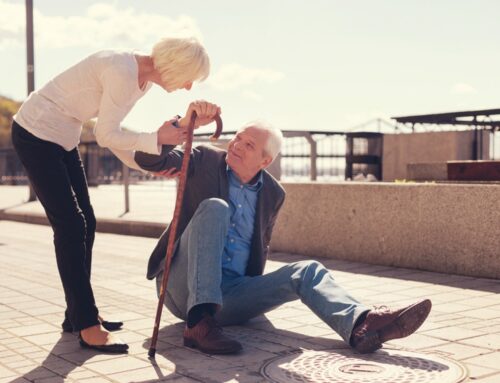Those who spent their childhoods free of allergy symptoms may be startled to learn that allergies can develop at any age. According to WebMD, many people who avoid developing allergies in their youth will manifest symptoms in their 30s or 40s, or if not then, then in the 50s and 60s.
Allergies for seniors can be frustrating, especially if they are newly diagnosed. Seniors excited to finally have time to spend outdoors may find themselves suffering from allergies.
Symptoms of allergies
Changes to climate, local plants and diet can cause new allergic reactions to develop. If your senior has a sore throat, runny nose, itchy eyes, hives or feelings of weariness, they should go to a doctor for an allergy test.
If allergies persist year-round, environmental factors may be the cause. Seniors should get a full panel test done to diagnose their allergies. Multiple allergies may need to be managed in different ways.
Types of allergies
-Seasonal: Hay fever, ragweed, grass, and tree pollen can make seniors miserable. These allergies are caused by regular pollen and spores of plants and trees outside. These allergies are predictable since they occur at roughly the same time each year, so seniors can start and stop antihistamines as needed.
-Environmental: Indoor allergies can include dust, mold, dander or sensitivity to certain kinds of fibers. These can occur year-round and often need to be treated with antihistamines and cleaning.
-Winter dermatitis: In cold, dry winter air, the skin loses moisture and is more likely to crack or be irritated. This can cause a rash called dermatitis, a skin allergy that can be triggered by scented products, detergents or even certain types of fabrics.
Treating allergies
Certain types of antihistamines are not recommended for people over age 65, so check with your doctor for the best approach to treating allergies. For indoor allergies, there are several things you can do:
- Investing in a vacuum with a HEPA filter can help remove allergens from fabric and carpet. These are fine enough to catch dust, dander, and pollen.
- Installing HEPA filters in vents can also help remove allergens from the air.
- An air purifier can run overnight in the bedroom to create white noise and remove allergens from the air while your senior is sleeping.
- Avoid opening windows during allergy season, especially in peak pollen times.
- Check pollen forecasts to anticipate when antihistamines are needed.
- Avoid line-drying clothes if your senior has pollen allergies.
- Keep saline eye drops on hand to flush out eyes and prevent pollen buildup.
A home care provider can help your senior set up an allergen-free home by helping with cleaning and setting up reminders to help them manage their allergies. Home care providers also can set up notifications or check the pollen forecast so seniors are aware of changes. Seniors don’t need to suffer unnecessarily from allergies. Quality of life can be maintained with some changes to routine and focus on keeping a clean home with the help of a home care provider.
If you or an aging loved-one are considering Home Health Care in East Pittsburgh, PA, talk to the caring staff at Superior Home Care today. Call us at 412.754.2600
Source:
Webmd.com
Medicalalertadvice.com







